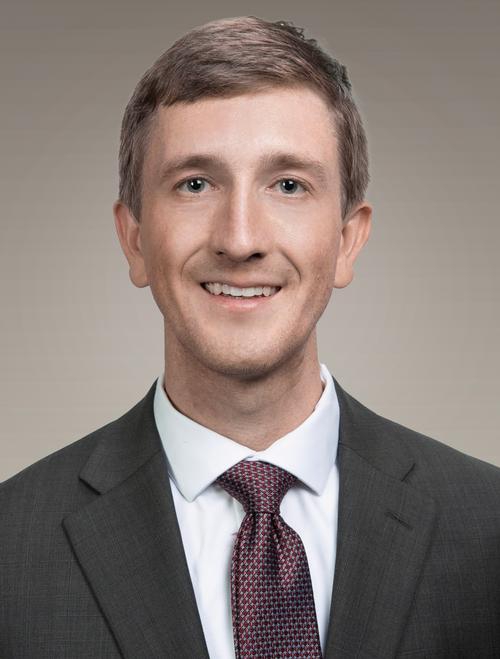Civil Lawsuits in Child Sexual Abuse Cases
Child sexual abuse is a serious crime in South Carolina, with strong criminal laws in place to punish offenders. Perpetrators can face felony charges, lengthy prison sentences, and mandatory registration as sex offenders. The South Carolina Code of Laws outlines multiple statutes prohibiting sexual abuse of minors, including offenses such as criminal sexual conduct with a minor (S.C. Code § 16-3-655), sexual battery with a student (S.C. Code § 16-3-755), engaging a child for sexual performance, (S.C. Code § 16-3-810), or lewd acts upon a child (S.C. Code § 16-15-140), among others. Law enforcement agencies and prosecutors have the authority to pursue charges against abusers, ensuring they face criminal penalties for their actions..jpeg)
However, many people don’t know that perpetrators can also be held liable in civil court. While Criminal prosecutions can hold abusers accountable to the state, they do not provide direct compensation or justice for victims and their families. Civil lawsuits, on the other hand, are brought by survivors and their families to seek financial damages. Unlike criminal prosecutions, which are limited to punishing the predator, civil lawsuits allow victims and families to seek legal remedies against businesses, religious institutions, daycares, schools, or other establishments when their negligence or recklessness enables the perpetrator’s abuse.
Understanding Civil Liability in Child Sexual Abuse Cases
Negligence occurs when an institution or individual has a duty to protect a child but fails to take reasonable steps to prevent the child from being harmed. In child sexual abuse cases, negligence can mean that a school, church, daycare, or other organization can be held responsible for failing to properly screen its employees, supervise employee interactions with children, respond to known abuse, or adopt policies and procedures needed to prevent abuse.
To establish a civil case for negligence, you must prove that (a) the defendant (e.g., school, church, daycare, etc.) owed the child a legal duty of care, (b) the defendant breached its duty, (c) the breach of its duty caused the child’s abuse, and (d) the child suffered harm as a result. Each are generally discussed below:
Duty of Care
In South Carolina, institutions owe a duty to the children under their care. When institutions voluntarily accept children into their care, they have a duty to take reasonable steps to ensure children are protected from foreseeable harm, including abuse by staff, volunteers, or other individuals.
Breach of Duty
A breach occurs when an institution fails to take reasonable steps to ensure the children under its care are protected from foreseeable harm. This could include ignoring signs of abuse, failing to screen employees properly, fostering an environment of abuse, failing to investigate reports of abuse, failing to adopt policies to prevent abuse, failing to train staff, etc.
Causation
For an institution to be held liable, its failure to take reasonable steps to protect children must cause the abuse. For example, let’s assume that minor Charlie attends Daycare A for half the week and Daycare B for the other half of the week. Let’s say that Daycares A & B both failed to properly screen their employees, allowing convicted sex offenders Mr. Alfred (who works at Daycare A) and Mr. Barnabus (who works at Daycare B) access to Charlie. If Charlie is assaulted by Mr. Barnabus, but not by Mr. Alfred, Charlie would only have a claim against Daycare B. While Daycare A owed Charlie a duty of care and breached their duty by hiring Mr. Alfred, Daycare A’s breach of duty did not cause any harm to Charlie. Instead, Charlie was harmed by Daycare B’s failure to properly screen Mr. Barnabus.
Thus, it is not enough that an institution is negligent. The negligence must cause the harm the child suffered.
Damages
The law recognizes that individuals (especially children) can be harmed in more than just the physical sense. Because of this, a child who suffered abuse due to negligence can recover for physical as well as emotional and psychological harm. A child’s damages very often include, but are not limited to, the costs of medical care and therapy, emotional distress and trauma, pain and suffering, and the loss of quality of life, among others. Punitive damages, or damages meant to punish particularly egregious conduct, are also available under certain circumstances.
Who Can Be Sued?
As long as the elements discussed above are met, any entity can be held liable in civil court. This includes churches and religious organizations, daycares and youth programs, sports organizations and camps, and individual abusers, among others. While public schools can be held liable, they are held to a different standard than most organizations.
Can Your Child’s School Be Held Liable in Civil Court?
When pursuing a civil case against a public school or school district in South Carolina for child sexual abuse, plaintiffs must navigate the South Carolina Tort Claims Act (SCTCA) (S.C. Code Ann. § 15-78-10 et seq.). This law governs claims against government entities, including public schools, and imposes specific legal hurdles for victims seeking justice.
One of the most significant challenges under the SCTCA is the requirement to prove gross negligence, rather than ordinary negligence when suing a school or district for failing to protect a child from sexual abuse. Gross negligence is a higher standard than ordinary negligence and requires showing that the school’s actions (or inaction) were more than just careless—they must have demonstrated a reckless disregard for the safety of children. While this standard is harder to meet than mere negligence, it is not impossible. In fact, when abuse exists, very often the failures that permitted the abuse are egregious enough to rise to gross negligence. This analysis, however, is fact-intensive and case-specific.
Ultimately, while criminal laws serve to punish abusers, civil lawsuits offer another path to justice for survivors of child sexual assault and their families.

